- Home
- Elizabeth Goudge
The Bird in the Tree Page 6
The Bird in the Tree Read online
Page 6
Almost without speaking they went everywhere. They opened doors into queer rooms lit only by the long fingers of bright sunlight that smote through the chinks in the shutters, setting all the dust motes dancing and the shadows piling themselves one upon the other in the darkened corners. They pursued long twisting passages to their strange conclusions in unexpected flights of steps and small closets through whose broken windows creepers had grown, trailing their tendrils on the floor. They disturbed families of mice and regiments of spiders, and found a starling’s nest that had fallen down a chimney. They explored attics under the roof where the plaster had fallen and the slates had slipped, so that patches of blue sky smiled in upon them, and exciting cellars where toadstools like orange flowers were growing in the must and damp. And at long last, worn out with excitement, they came back to what they knew was the heart of the house, the long low drawing-room with the wide hearth and the high mantelpiece and overmantel of dark carved wood that stretched from floor to ceiling.
Hand in hand they stood before it, peering at it through the dimness of the shuttered room. It seemed to tower above them, the carving of it lit here and there by the dusty beams of light that came through the shutters. Looking at it Lucilla suddenly felt that a great ship was sailing towards her, driven fast on a rising sea. She fancied she could hear the roar of the water as it surged away from the proud curve of the prow, and see a shadowy figure moving high up upon the deck. With a sudden gesture of panic she pushed David back, lest that sharp prow should run him down.
“What is it, Grandmother?” he asked. “Are you frightened?”
Lucilla laughed. “I was so silly, David,” she said. “Just for a moment I thought the mantelpiece was a ship. Let’s open the shutters, and then I shan’t be silly any more.”
There were two windows, both facing south-west, long windows with window-seats below them set in the thickness of the wall. Lucilla and David, standing together on the first window-seat, had hard work to push up the heavy iron bar that closed the shutters. Yet when they had at last done it they were well rewarded, for the shutters creaked back to show them what lay within the old red walls that they had passed as they came through the oak-wood. . . . The garden.
Lucilla and David gasped and clutched each other, for it was such a garden as neither of them had seen before. It was a wild, crazy garden, the kind of garden in which the sleeping beauty and her court lay sleeping for a hundred years. Once it had been planted with orderly care and neatness, but now all the flowers and trees and bushes had gone mad together with a sort of jubilant madness that was one of the loveliest things Lucilla had ever seen. The rose trees, bright with their new green leaves, were running riot everywhere, climbing up over the old wall, festooning themselves over the cherry trees and oak trees, cherry trees to the east and oaks to the west, that grew in the tangle of wild grass that had once been lawns and flower-beds, and flinging out greedy suckers over the bushes of silvery lavender and rosemary that were struggling gallantly to keep their heads above the tide of green that threatened to wash over them completely. The cherry trees were out already, a foam of white against the blue, and below them daffodils flowed through the grass in drifts of gold. Somewhere, it seemed, violets were growing, for the scent of them drifted in through the open window; but they couldn’t be seen, they had been submerged long ago; and just outside the window, standing up sturdy and strong above the general riot, its stiff little leaves like blobs of dark green paint against the bright sky, was an ilex tree.
“Grandmother,” said David, “could I go out into the garden?” And then he added in a whisper, “Could I go alone?”
“Of course, darling,” said Lucilla, and she lifted him over the sill, setting his feet down among the daffodils below the window. In a minute he was gone, running quickly, hidden from sight by the green sea of grass and the swelling waves of the rosemary and lavender. Lucilla did not fear for him. No harm could come to him in a walled garden. House and garden, oak-wood, marshes and sea, it was all of it a children’s paradise, and a paradise that would not lose its glory as the children grew older. . . . She had found what she wanted. . . . She leaned her head back against the folded shutters and her hands fell idly in her lap. She was worn out by sleepless nights, by travelling and arguing and desolation. Her eyelids, deeply shadowed by the grief that had found no relief in tears, quivered a little, as though resisting the fingers of the sun laid gently upon them, then they yielded and she was asleep.
As she slept she dreamed one of those astonishingly vivid dreams that make the dreamer feel that his soul has actually left his body and gone voyaging. She was walking through a forest in a strange country. About her the great trees soared upwards, stretching their branches against the sky like arms held up in adoration. They were like living creatures, those trees, and so were the myriad flowers that grew about her feet. In their colour and scent they were as an army that praised God; the ground was singing bright with them. There were carolling birds in the trees who did not fly away when she came near them, and little brown furry beasts in the undergrowth who had never known the meaning of fear. There was water not far away. She could hear the murmur of it and see the calm blue of it shining through the trees. And yet behind this music there was a deep quiet. Though she moved onwards yet she was resting. The music and the silence, the movement and the rest, seemed co-existent together. She felt happy with a quite indescribable happiness that was yet best described by the word cleanliness. In body, mind and spirit she felt clean, with her thoughts unmuddied and her body a perfect instrument of the spirit within her that she could feel was as a polished mirror to reflect and transmit the light about her.
That light, too, was indescribable. It was something like the light of earthly dawn that she had seen before she slept, holding the same depth of colour, the same coolness and warmth as the light of the sun and moon shining together, yet it transcended that as greatly as the light of the sun transcends the flicker of a candle. The music that was all about her, lovely yet diffuse as light, seemed to gather itself into one single phrase, as when the voice of a solo singer soars out above the harmony of orchestra and voices, and she heard the words of it. “They have no need of the sun, neither of the moon, to shine in it, for the Lord God giveth them light.”
Then she laughed out of her joy, for she knew where she was. And she knew too why she was here, and why she had been born into that life that she had left, and why those whom she loved had been born into it, had suffered in it and had left it; to reflect and transmit this light from the mirror of a pain-cleansed spirit.
“Who sang to me?” she asked, and there was a flutter of wings above her. A small blue bird was with her, not flinging her snatches of song as she passed like the birds in the trees but accompanying her all the way that she went with his music and the flutter of his wings. She could not hear the words of his song now, but she had heard them. He had been with her all the time, she was sure, but just at first she had not seen him. As she became more familiar with this country she knew that as she went on the boundaries of it would widen. It was the glorified beauty of the familiar and habitable earth that she saw now, the trees and flowers and creatures that made up the sweetness of it, but soon she would see more. She would see the spirits of those she loved going about the purposes of God bathed in the light of His perpetual compassion; and at the last she would see even further; but of that she dared not yet think. . . . Yet, thinking of it, she began to run, effortlessly, almost as though she were winged, and the bird, tossing like a blue flame in the air about her, sang and sang and sang.
And then she saw nothing but the darkness of her closed eyes and with a sickening sense of frustration she knew she was awake. But the bird was still singing; the liquid cascades of his song fell in showers all about her. For a long time she listened, then she opened her eyes and saw him sitting in the ilex tree. . . . But he was only a blackbird after all. . . . For just a moment the blueness of the morni
ng had been reflected in his shining feathers as it had been reflected in the pools and the polished leaves in the lane.
Yet how happy she was. One part of her mind was telling her that her dream was just a mix-up of the dawn and the flowers in the garden and the singing blackbird, but another part of it was saying that one world inter-penetrates another; we live in them both, but of the greater we know now only that which the lesser tells us of it; and the language of the lesser is the language of dreams and birdsong, sunshine and the kindliness of man.
David suddenly appeared beneath the window. “Grandmother!” he cried excitedly. “I saw a blue bird!”
“Did you, darling?” said Lucilla. “So did I.” And she helped him to scramble back through the window and curl himself up on her lap.
“Shall we live here?” he suggested in commanding tones.
“Yes,” said Lucilla.
“Right,” said David, and wriggled himself comfortable, his smooth golden head laid against her shoulder and his eyes following the sunbeams as they caressed the room that was opened to life again after so many years.
And here they were found by a rightly incensed Hilary, Margaret and Ellen.
“Mother!” exclaimed Hilary. “Do you know the time?”
“Nine o’clock, darling,” said Margaret “Breakfast was to have been at eight.”
Ellen merely sniffed.
“Hilary,” asked Lucilla, “why did you not tell me about this house?”
“We’re going to live here,” announced David.
Ignoring his nephew’s remark as unworthy of attention Hilary concentrated upon Lucilla’s question.
“I didn’t think you would be interested, Mother. It’s an awful old barn of a place that’s been empty for years. It would cost a fortune to get it into order now. What ever made you come here? We’d not have known where to find you if someone in Little Village hadn’t seen you go in.” He smiled indulgently at his unaccountable mother. “What a jaunt to take before breakfast! You’re as much of a child as David.”
“And the surroundings,” continued Lucilla, gently preparing her children for the coming blow, “the marshes and the oak-wood and the garden. It’s all a paradise.”
“In the spring and summer,” said Hilary darkly.
“We’re going to live here,” continued David, who felt that this point was not being sufficiently stressed.
“Don’t be silly, darling,” said Margaret, brushing cobwebs off her skirt “No one could possibly live here.”
“Margaret, my dear,” said Lucilla kindly but firmly, “I am very sorry, but I am afraid that we are going to live here.”
— 5 —
And so it was that the Eliots came to Damerosehay, for Lucilla wanted Damerosehay and Lucilla had to have what she wanted. Her children, worshipping the very ground she trod on, saw this as clearly as she did herself, but what they did not at first see as clearly as Lucilla was how the purchase and restoration of Damerosehay was to be reconciled with the condition in which the family finances unfortunately found themselves. “I’ll sell my diamonds,” said Lucilla happily, and thought she had found the solution of their difficulties. They did not undeceive her. They let her think, since she wanted to think it, that the sale of the diamonds, which just about mended the roof and modernized the drains, but no more, had purchased the whole estate, but secretly they all of them, Hilary, George, Stephen and Margaret, dived into their pockets and laid the last available halfpenny upon the altar of Damerosehay. The sons suspected that they would be helping to pay for the upkeep of the place until their dying day, and Margaret, facing year after year of struggle with an under-staffed house and garden and ends that could be persuaded to meet only with the greatest difficulty, had felt sometimes that her strength and her courage must surely break. Yet, twenty years later, in this Autumn of 1938, they were all agreed that it had been worth it. Lucilla had been quite right. Damerosehay was their inevitable home. From the very beginning, almost as though it were alive, it had taken them all to its heart and held them there.
And things were easier now; though still they couldn’t afford to install the electric light plant that Margaret longed for but Lucilla didn’t because the softness of oil lamps was, she felt, more suited to the age of Damerosehay; it was Margaret, of course, and not Lucilla, who did the lamps. George, the father of Ben, Tommy and Caroline, was now a major, and Stephen had become as successful a barrister as his father before him. In spite of George’s polo, wife and children, and Stephen’s wife and children and collection of first editions, they could contribute more to Damerosehay than they had done, though not as much as Margaret thought they should do; and Hilary’s careful juggling with Lucilla’s investments, and Margaret’s unselfish economy, had further pulled them through rough waters into a comparatively smooth harbour. As Lucilla sat waiting for David that September evening she looked what she was, a leisured and lovely old lady securely enthroned in a home where there was enough money for the creation of dignity and beauty but not enough for luxury or ostentation.
For it is one of the special mercies of providence, Lucilla was apt to say, that beauty and shabbiness are quite compatible. The great thing, she would tell her grandchildren, is to start well. A thing of beauty is a joy forever, but it must be a costly and strong beauty, purchased at a high price of service or sacrifice, not skin-deep but bone-deep, if it is to be as desirable at the shabby end as it was at the sumptuous beginning. Pointing a moral to the grandchildren she would wave a hand towards her Sheraton chairs with the petit-point seats worked by her grandmother in a pattern of purple pansies and crimson gilliflowers. She would tell them how the exquisite curves of the wood had been created by the hands of a craftsman, each tool in its aptness and simplicity itself a thing of beauty in his hands as patiently, line by line, he fashioned the vision that was in his mind. And the same with the grandmother’s needlework. She had spun the wool herself and dyed it to its lovely colours with the juices of plants picked upon her walks, she had seen with the eyes of her mind a vision of her garden, formalized and touched with perpetual stillness, and painted the picture with her needle upon canvas. And now though their legs were scratched and their colours were faded the chairs were as lovely as ever. Lovelier, Lucilla declared, because a work of art is like a human being, the more it is loved the more beautiful it grows, reflecting the gift of love like light back again to the giver. . . . The Odes of Keats, she had heard it said, are lovelier now than when they were written. . . . And the same with her Sheraton chairs, which had been loved now for so many years. And everything in the house, she had told Margaret twenty years ago, must be as love-worthy as they were if Damerosehay was to be a perfect refuge for the grandchildren. Margaret had sighed and asked if this dictum applied to the saucepans. “Certainly,” Lucilla had replied. “I’ll have none but the very best saucepans.”
The furnishing of Damerosehay with works of art from attic to cellar had been a crushing expense at the time, for very little of the furniture from her London house, bought originally by James, was considered by Lucilla to be worthy of Damerosehay, but it had been worth it. Looking round at her drawing-room Lucilla could note with satisfaction that though Margaret had had to darn the Persian rugs in places, those places concealed by the tactful disposition of the armchairs and sofa, yet the colours of them, the rose and amethyst and midnight blue, were as bright as ever. And it was the same with the stiff eighteenth-century chintz; it was cracked here and there but the posies on it were as fresh as those in the garden. The Dresden china, that no one but Ellen might touch upon pain of death, was still in its first Arcadian perfection; not a shepherdess had lost her pretty head, not a lamb its garland; and the crowning glory of the drawing-room, the great carved mantelpiece and overmantel that reached from floor to ceiling, swirling upwards in a bewildering polished luxuriance of sweeping curves and spirals that looked like the breaking waves of an ebony sea, was surely as perfe
ct today as when it had been placed there by no-one-knew-who.
For what Lucilla could not discover was the history of her house. The last owner, before the arrival of the Eliots, had been a Mr. Jeremy Martyn, a bachelor of peculiar habits, who had sat tight within its walls for a lifetime, studying the habits of birds and letting the roof fall quietly in over his eccentric head while he gave away the whole of his substance to the deserving poor. He had died of heart failure at the age of ninety-five, only six years before the arrival of the Eliots, but oddly enough no one seemed to know where he was buried; probably in the churchyard at Big Village, but there was no headstone to say so. His dilapidated property had descended to his nearest relative, a distant cousin already in his dotage, from whom the Eliots had bought it.
And before Jeremy a French woman with the lovely name of Amarante Emilie du Plessis-Pascau, had lived there, probably a descendant of one of the many refugees from the French Revolution who had formed a colony not far from Damerosehay, at the little town of Seacombe on the Estuary. No one knew how she had come there, or anything about her, not even Obadiah who had been a little boy of four at the time of her death. He only knew that she had died, and that she had been very beautiful but no better than she should be, and that was all. She had not been as mysterious in her choice of a burying place as Jeremy, for her grave was to be found in the churchyard at Big Village, but the texts she had chosen for her tombstone were not exactly what one would have expected. They were from the Apocrypha. “He was overtaken, and endured that necessity which cannot be avoided. For gold is tried in the fire, and acceptable men in the furnace of adversity.” And then, lower down, “A melodious noise of birds among the spreading branches, a running that could not be seen of skipping beasts. The whole world shined with clear light, and none were hindered in their labour.” Such odd texts to choose, and not, apparently, referring to herself. It was very peculiar.

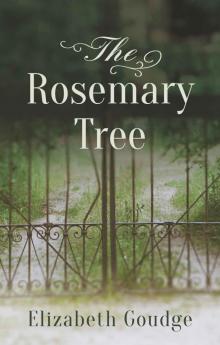 The Rosemary Tree
The Rosemary Tree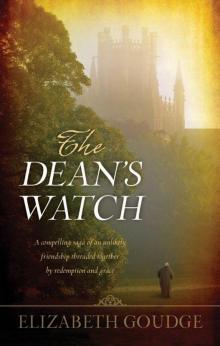 The Dean's Watch
The Dean's Watch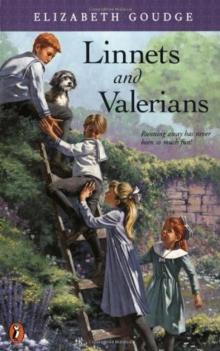 Linnets and Valerians
Linnets and Valerians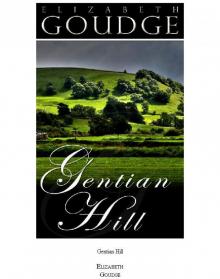 Gentian Hill
Gentian Hill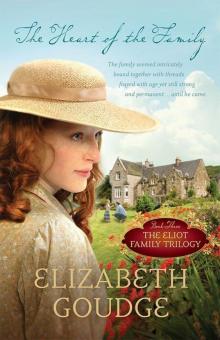 B00DRI1ZYC EBOK
B00DRI1ZYC EBOK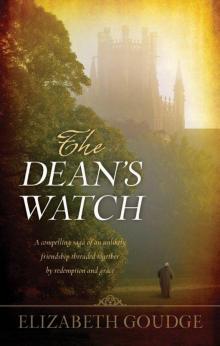 B008O6ZWTG EBOK
B008O6ZWTG EBOK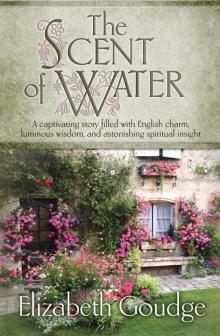 The Scent of Water
The Scent of Water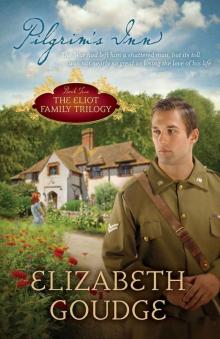 Pilgtim's Inn
Pilgtim's Inn Island Magic
Island Magic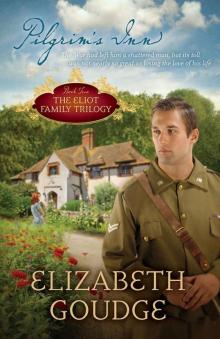 Pilgrim's Inn
Pilgrim's Inn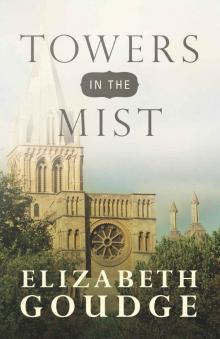 Towers in the Mist
Towers in the Mist Green Dolphin Street
Green Dolphin Street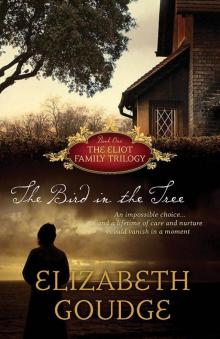 The Bird in the Tree
The Bird in the Tree The Child From the Sea
The Child From the Sea My God and My All: The Life of Saint Francis of Assisi
My God and My All: The Life of Saint Francis of Assisi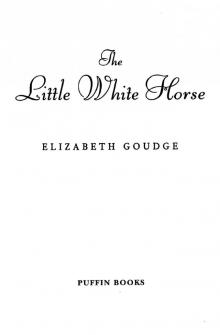 The Little White Horse
The Little White Horse My God and My All
My God and My All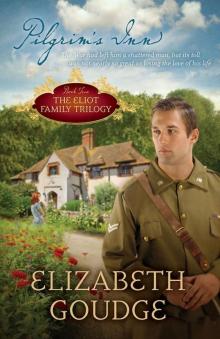 B00CKXCNH8 EBOK
B00CKXCNH8 EBOK